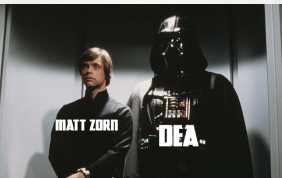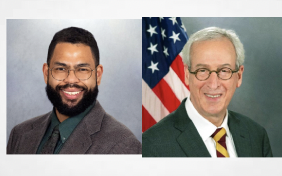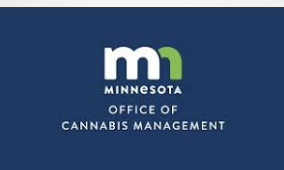The University of Tulsa’s College of Law, Office of the Provost, and Tulsa Law Review recently hosted a daylong symposium titled “Contemporary Cannabis: Wading through a Post-Prohibition Era.” Focused on a variety of topics related to legal issues surrounding cannabis, the event included morning and afternoon panels of experts, as well as a luncheon featuring keynote speaker Robert Mikos, a professor at Vanderbilt University Law School and cannabis law scholar.
“Cannabis is illegal at the federal level and currently remains classified as a Schedule 1 drug, the most serious classification,” said Cameron Skinner, a juris doctor candidate at TU’s College of Law and one of the organizers of the symposium. “However, the majority of states now have some form of legal cannabis, whether for purely medical use, recreational use, or both. As Oklahoma legalized medical marijuana, we felt as though it was important scholarship to bring to TU, and the timing worked out well with TU’s new cannabis minor at the undergraduate level.”
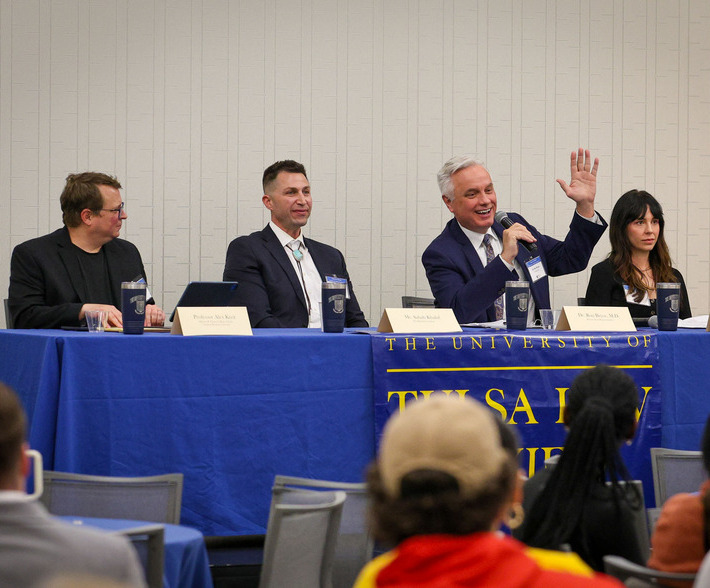 The morning panel focused on the tension between federal law and state law for cannabis businesses, such as the inability of banks to loan money to cannabis enterprises due to federal prohibition. The four panelists were Southern University Law Center Professor Ryan Stoa, Sturm College of Law Professor Eli Wald at University of Denver, Oklahoma Medical Marijuana Authority Executive Director Adria Berry (JD ’08), and Shane Pennington of Porter Wright Morris & Arthur LLP. Jeffrey Trevillion of Crowe & Dunlevy served as moderator.
The morning panel focused on the tension between federal law and state law for cannabis businesses, such as the inability of banks to loan money to cannabis enterprises due to federal prohibition. The four panelists were Southern University Law Center Professor Ryan Stoa, Sturm College of Law Professor Eli Wald at University of Denver, Oklahoma Medical Marijuana Authority Executive Director Adria Berry (JD ’08), and Shane Pennington of Porter Wright Morris & Arthur LLP. Jeffrey Trevillion of Crowe & Dunlevy served as moderator.
The afternoon panel focused on evidentiary issues related to cannabis law, such as the ability for legally licensed medical marijuana users to potentially be charged with driving under the influence days or even weeks after their last cannabis use. The panelists were Salmon P. Chase College of Law Professor Alex Kreit at Northern Kentucky University, Dr. Ron Bryce of Kansas State House of Representatives, and the Climb Collective’s Kaimbri White.

The keynote speaker at the luncheon was Robert Mikos, the LaRoche Family Chair in Law at Vanderbilt University and author of “Marijuana Law, Policy, and Authority.” He is nationally renowned for his scholarship in federalism and cannabis law.
His presentation focused on the recent recommendation to move marijuana from a Schedule 1 drug to a Schedule 3 drug, which would have far-reaching effects on how Americans legally consume and purchase marijuana products. Tulsa Law Review will publish his speech later this year in a special edition dedicated to the symposium, alongside contributions from other panelists.
“It was a lot of work, and there were many moving parts to juggle in order to make this event successful,” Skinner said. “We are enormously grateful that so many leading scholars in this field accepted our invitation to speak and provided their time and expertise to educate at TU. Our attendance numbers for each panel and the keynote were very high considering the nature of the event and the amount of marketing.
“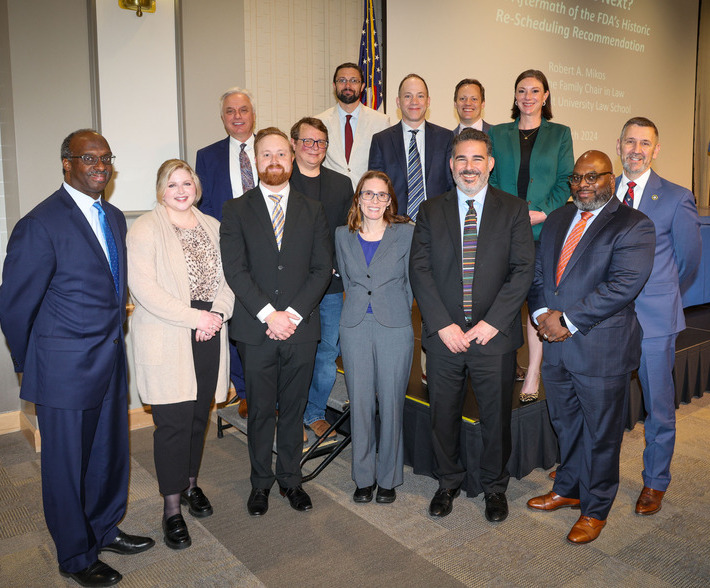 Although this event catered to law students and legal professionals, it crosscut with many areas of study in the undergraduate programs at TU and was appropriate for people of all educational levels and backgrounds. We are thankful to the offices of the provost and the dean of the College of Law for their financial contributions to this event. We could not have provided such an amazing academic opportunity without their support.”
Although this event catered to law students and legal professionals, it crosscut with many areas of study in the undergraduate programs at TU and was appropriate for people of all educational levels and backgrounds. We are thankful to the offices of the provost and the dean of the College of Law for their financial contributions to this event. We could not have provided such an amazing academic opportunity without their support.”
Tulsa Law Review hopes to put on a yearly academic symposium, featuring topics that are timely and relevant to law in Oklahoma and nationwide.



